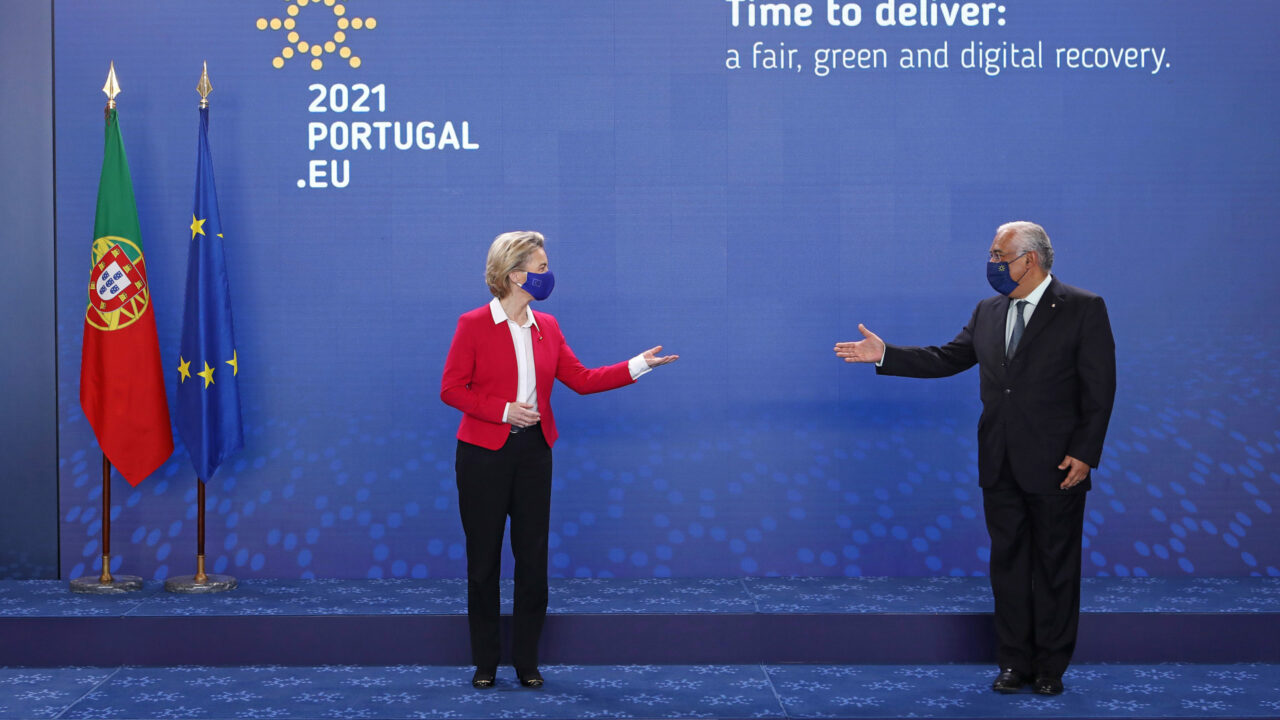Where Portugal can lead Europe in 2021
As president of the European Council, Portugal’s foreign policy intray is full to brimming – but the country has numerous strengths to bring to bear
This month Portugal assumed the presidency of the European Council – the fourth time it has taken on the position. It will almost certainly be the most challenging. There springs to mind the Irish story of the horse-rider lost in the countryside: he asks a farmer the way to Dublin and is told, “Well, I wouldn’t start from here.”
Naturally, the pandemic – and the consequent decisions to extend financial and health solidarity across the European Union – obliged Portugal to radically reconsider the priorities it had originally sketched out for its tenure. The country’s leaders will need to deploy all their political skills to reinforce Europe’s cohesion in the face of economic and health challenges. The EU’s place as a provider of public goods hangs in the balance, as seen from both within and outside of Europe.
That being said, the current context also offers the EU a considerable opportunity to bolster its “strategic sovereignty” in decisive areas. The requirements are demanding but clear.
The first priority for Europe is to work with the new US president to rebuild the transatlantic community. This is essential for supporting a rules-based international system, to make it resilient to revisionist powers that aim to bend it to their own interests.
Europe’s first priority is to work with the new US president to rebuild the transatlantic community.
The transatlantic relationship is no longer taken for granted in Europe, not least as the United States’ foreign policy becomes ever more dependent on unpredictable and fragile domestic politics. In the last few years, Europeans have come to see themselves as needing to step up on security and defence, trade, and the regulation of the digital space. In fact, the future of the transatlantic alliance and the strength of Europe’s strategic sovereignty are now interdependent. Also on Portugal’s desk is the need for an urgent discussion with the United Kingdom on re-establishing a strategic relationship on security and defence within the framework of a reinforced European dimension of NATO.
Secondly, across the EU, strategic ambiguity towards China must be replaced by a common policy on questions such as dependency on value chains, investment in strategic areas, economic reciprocity, and respect for international norms and human rights. Stronger policy in these areas will guide Europe through the growing US-China rivalry, in which it will not be able to remain a spectator. On the contrary, there are clear choices that Europe will have to make. It should therefore seek an understanding with the US, still Europe’s main ally, in areas such as technological security, climate, engagement with Asia and Africa, and the security of maritime routes.
Thirdly, European leaders will need to realise that the former, highly idealistic, European view of multilateralism has for too long now been kept hostage to geopolitical pressure and no longer guarantees Europe’s best interests. Leaders should contemplate how to put in place a new multilateral order within the international system, one based on democracy and liberal values.
A close conversation with the US is of the essence for this purpose. The timing of the recent investment treaty with China was the most disastrous sign Europe could possibly have sent to its transatlantic partner, coming across as go-it-alone posturing in the Trumpian style (the labour clause argued to be a negotiating asset, in trusting that Beijing will enforce international labour standards, would be ridiculous were it not hypocritical). Furthermore, it amounted to a self-defeating move in view of the larger aim of fostering a like-minded environment in the Indo-Pacific.
In fact, Europe should now view alliances with Asian democracies such as India, Japan, and Australia as part of its own security. In May, the EU-India summit will take place in Oporto, and the presence of both the Indian prime minister and European leaders will be a valuable opportunity for engaging with the largest democracy in the world on climate and security, and exploring the possibilities for India as an alternative provider of value chain goods. It will also be important to conclude the EU-India trade agreement which is also still under negotiation.
Last but not least, European leaders should no longer ignore the strategic importance of Africa in geopolitical competition. Portugal has a particular knowledge and competence in African affairs which gives it the chance to help move Europe’s position forward in this relationship. The forthcoming EU-Africa Summit in Brussels will be an opportunity for Portuguese diplomacy to display its strengths. The EU should seek a “Euro-African partnership”, not only as a sum of bilateral relationships, which too often carry vestiges of former colonial relationships, but as a true political partnership, involving the EU itself and aiming to secure European strategic autonomy in the face of competing powers in Africa. Through these partnerships it will be valuable to address crises such as the pandemic and the climate emergency. China has its first naval base in Africa and is soon to obtain others, probably in exchange for pardoning its colossal African credits in exchange for infrastructure investment. Russia hosted a summit focused on its relations with African states and is now about to build its second naval base outside its territory, in cash-strapped Sudan, and which will have capacity for nuclear-powered vessels. Europe needs to catch up.
The world facing the Portuguese presidency today is daunting indeed – although it looks a little better than two months ago. Skilled leadership over the next half-year will be able to make progress in a number of key areas for European sovereignty.
The European Council on Foreign Relations does not take collective positions. ECFR publications only represent the views of their individual authors.



